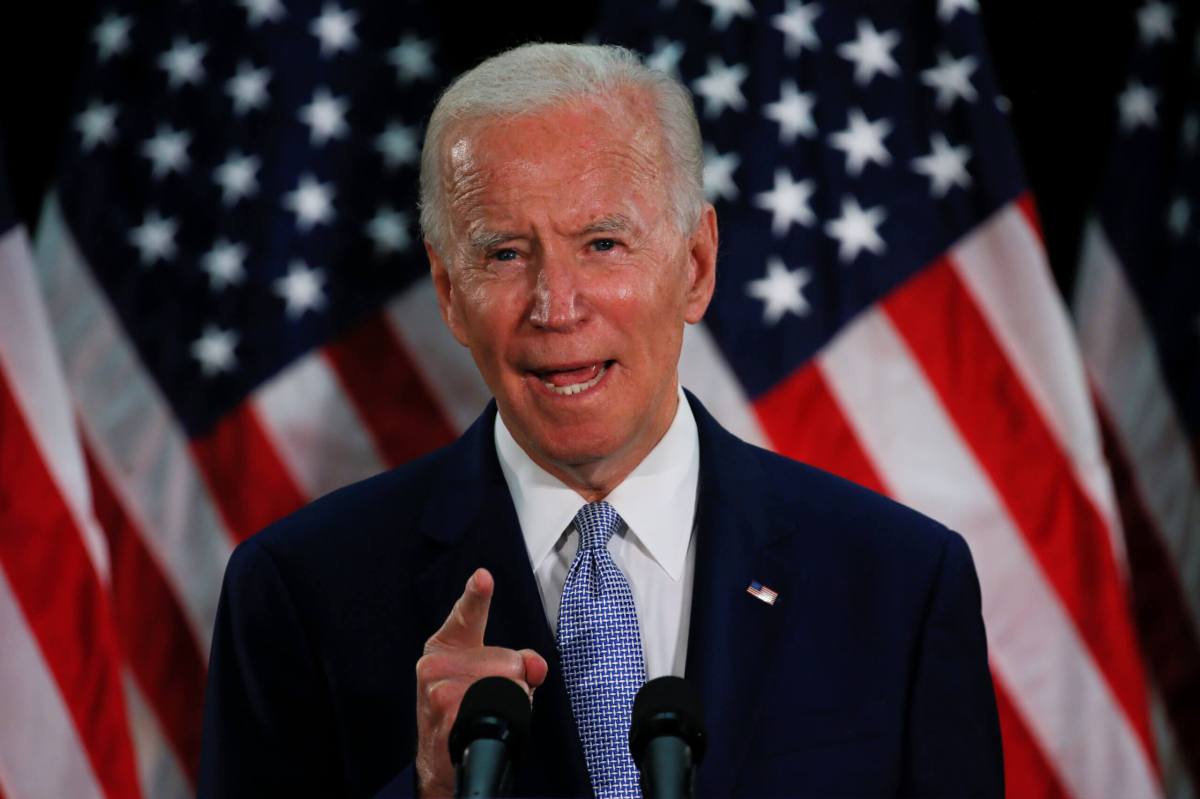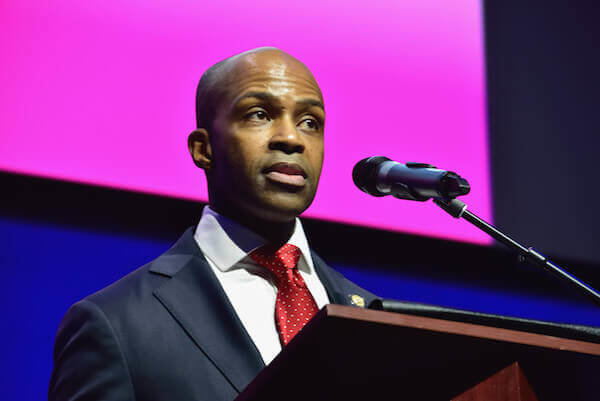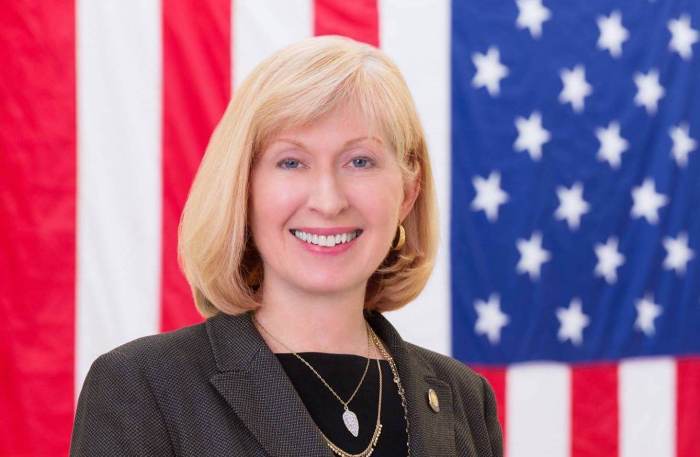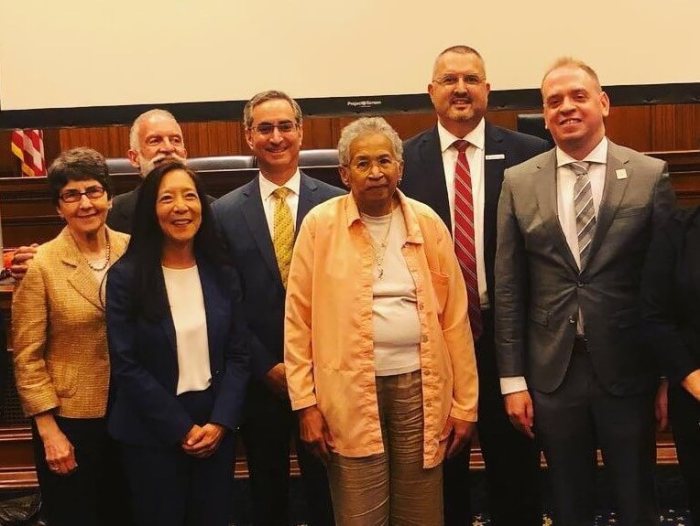Former Vice President Joe Biden’s campaign has assembled an LGBTQ steering committee, fleshed out its queer platform, and fortified its get-out-the-vote effort in a bid to ensure the community turns out for him come election day — especially in pivotal swing states.
The campaign’s renewed turnout push coincides with a wave of fierce resistance to President Donald Trump on display during protests calling for major change following the police killing of George Floyd in Minneapolis. But the new focus on queer issues also comes at a time when many parts of the nation continue to face restrictions due to the coronavirus pandemic, forcing the campaign to make adjustments.
One key piece of the campaign’s newest announcement on LGBTQ issues is a “digital toolkit” that intends to facilitate “Out for Biden” virtual gatherings. The kit encourages folks to create a list of on-the-fence friends, family members, co-workers, and others, and then connect with them through video chat platforms to try to rally support for Biden. The toolkit also offers templates for social media posts, emails, and text messages; “I’m on Team Joe” Pride avatars; and other Biden Pride graphics. The kit invites supporters to “share your #OutforBiden story.”
“Out for Biden is a national GOTV [get out the vote] initiative aimed at engaging LGBTQ+ and pro-equality voters, identifying and registering LGBTQ+ voters in key battleground states, and equipping them with the tools and information needed to ensure we elect Joe Biden in November,” states a message on the Biden campaign website.
The Biden campaign also posted an LGBTQ policy page playing up the former vice president’s accomplishments on queer issues, including his announcing support for marriage equality days before President Barack Obama himself decided to voice his own endorsement in 2012. While Biden supports many queer rights initiatives, he has a mixed record overall: He once backed the implementation of Don’t Ask, Don’t Tell, which banned gay and lesbian troops from serving openly, and on an issue that has caught on dramatically among LGBTQ activists, he has yet to support the decriminalization of sex work — an issue that disproportionately affects trans women of color.
But Biden supports the comprehensive LGBTQ non-discrimination measure known as the Equality Act, wants to drop the ban on transgenders troops imposed by Trump in a reversal of an initiative launched late in the Obama administration, and intends to reinstate protections for homeless individuals, students, and incarcerated folks who are transgender. Among other key pledges, he also wants to eliminate laws that criminalize HIV-positive people in their sexual conduct and include trans and non-binary people in entrepreneurial training programs funded by the Department of Labor and the Small Business Administration.
Biden is also vowing to “improve access to quality healthcare” and “ensure coverage for comprehensive care for LGBTQ+ Americans,” though that approach is complicated by his own opposition to single-payer Medicare for All at a time when many Americans continue to struggle to afford even basic healthcare needs. As opposed to Vermont Senator Bernie Sanders, his former chief rival for the Democratic nomination, Biden consistently argued that expanding Obamacare was the best route to universal care.
And, of course, Biden will face off against an incumbent Republican who has attacked the LGBTQ community on a broad range of fronts, including the ability to serve in the military, protections for LGBTQ students, student-athletes, and transgender Americans generally, religious carve-outs from nondiscrimination protections, and Trump’s position — contrary to that of the Obama administration — that sexual orientation and gender identity are not protected classes under the sex discrimination provisions of the 1964 Civil Rights Act.
The campaign unveiled a steering committee consisting of a nationwide slate of elected officials and leaders, with several of them hailing from key swing states. The list includes Wisconsin Senator Tammy Baldwin, Florida State Representative Shevrin Jones, Pennsylvania State Representatives Malcolm Kenyatta and Brian Sims, Virginia State Delegate Danica Roem, New York Congressmember Sean Patrick Maloney, and Minneapolis City Council Vice President Andrea Jenkins. Others on the list include Human Rights Campaign president Alphonso David, National Center for Transgender Equality executive director Mara Keisling, and TransLatin@ Coalition CEO and president Bamby Salcedo.
Biden has gained ground on Trump as of late, padding his lead among registered voters in multiple polls throughout the last month. A June 9 New York Times analysis of a half-dozen polls indicates that the president is continuing to slip in the polls in the midst of the coronavirus pandemic, economic instability, and widespread racial justice protests.
The Biden campaign said it was working on responding to questions from Gay City News regarding the campaign’s approach to voter turnout efforts in swing states, especially as people in safer blue states seek out ways in which they can contribute toward making sure Trump is voted out of office in November. The campaign did not provide an official response by press time.
To sign up for the Gay City News email newsletter, visit gaycitynews.com/newsletter.



































